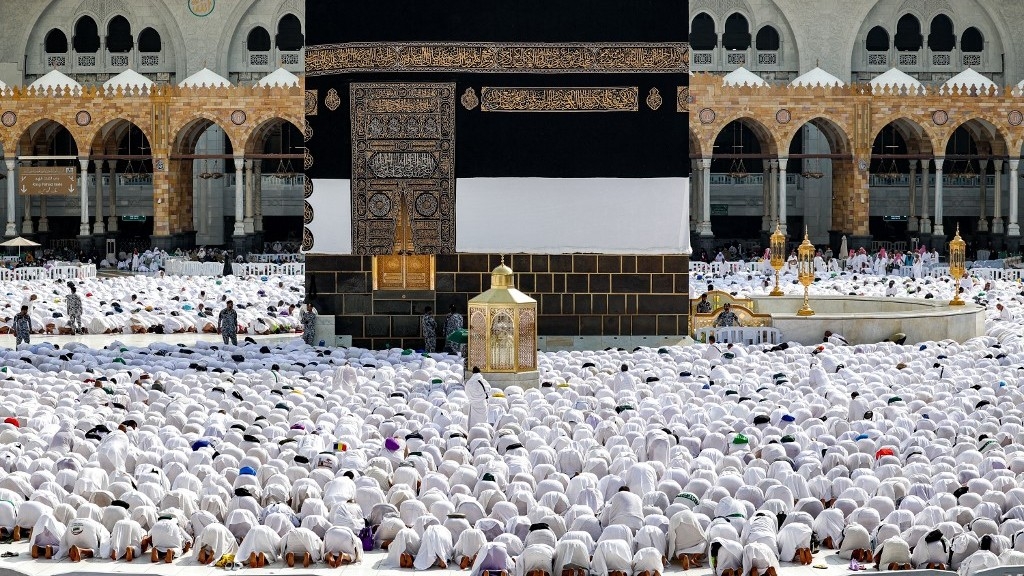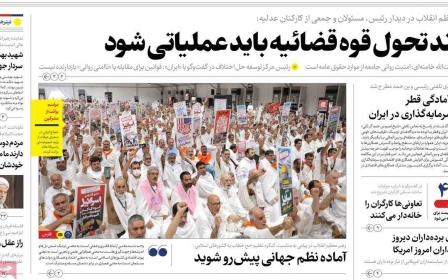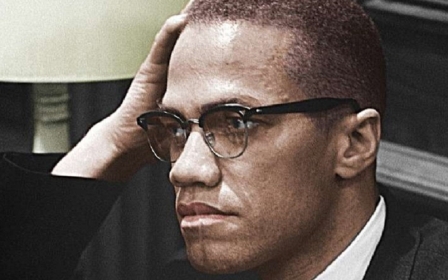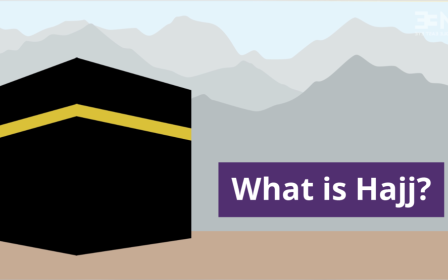Saudi Arabia says no place for 'political slogans' in Hajj in apparent reference to Gaza

The Saudi minister of Hajj said that political slogans have no place during the pilgrimage as he announced that 1.2 million Muslims arrived in Mecca this week to perform the annual event.
"Hajj is for worship, not for any political slogans," Tawfiq Al-Rabiah said on Thursday, in response to a question by a reporter about the rules and punitive measures governing "political and sectarian slogans".
"This is what the Kingdom's leadership, may God preserve it, is working on, ensuring that Hajj truly embodies the highest levels of devotion, tranquility, and spirituality," he added.
Al-Rabiah said in previous years there has been "a high level of compliance" with these rules.
The Saudi Supreme Court on Thursday announced that the annual Hajj will begin on 14 June and Eid al-Adha will be marked two days later.
New MEE newsletter: Jerusalem Dispatch
Sign up to get the latest insights and analysis on Israel-Palestine, alongside Turkey Unpacked and other MEE newsletters
Hajj is one of the five main pillars of Islam and is a religious obligation on all Muslims who are healthy, financially able, of sound mind, and of age to perform the pilgrimage at least once in their lifetime.
Israel's devastating war on Gaza has drawn condemnation from Muslims around the world, but protests are illegal in Saudi Arabia and freedom of expression is largely suppressed.
Saudi pro-government imams have publicly prayed for Gaza and the Palestinians in weekly Friday sermons since October, but the rules announced by the Hajj minister suggest such expression could be restricted.
Although Saudi Arabia has not formally recognised Israel since its creation in 1948, there has been persistent speculation that the kingdom would normalise relations with the state as its Gulf neighbours Bahrain and the United Arab Emirates have in recent years.
These rumours, however, were disrupted following the 7 October Hamas-led attack on Israel and the subsequent Israeli war on Gaza that has killed more than 36,500 Palestinians.
Saudi Arabia has been a strong opponent and critic of Israel’s onslaught.
The Saudi foreign ministry said in February that no normalisation would take place without a ceasefire and progress toward Palestinian statehood.
Middle East Eye delivers independent and unrivalled coverage and analysis of the Middle East, North Africa and beyond. To learn more about republishing this content and the associated fees, please fill out this form. More about MEE can be found here.




